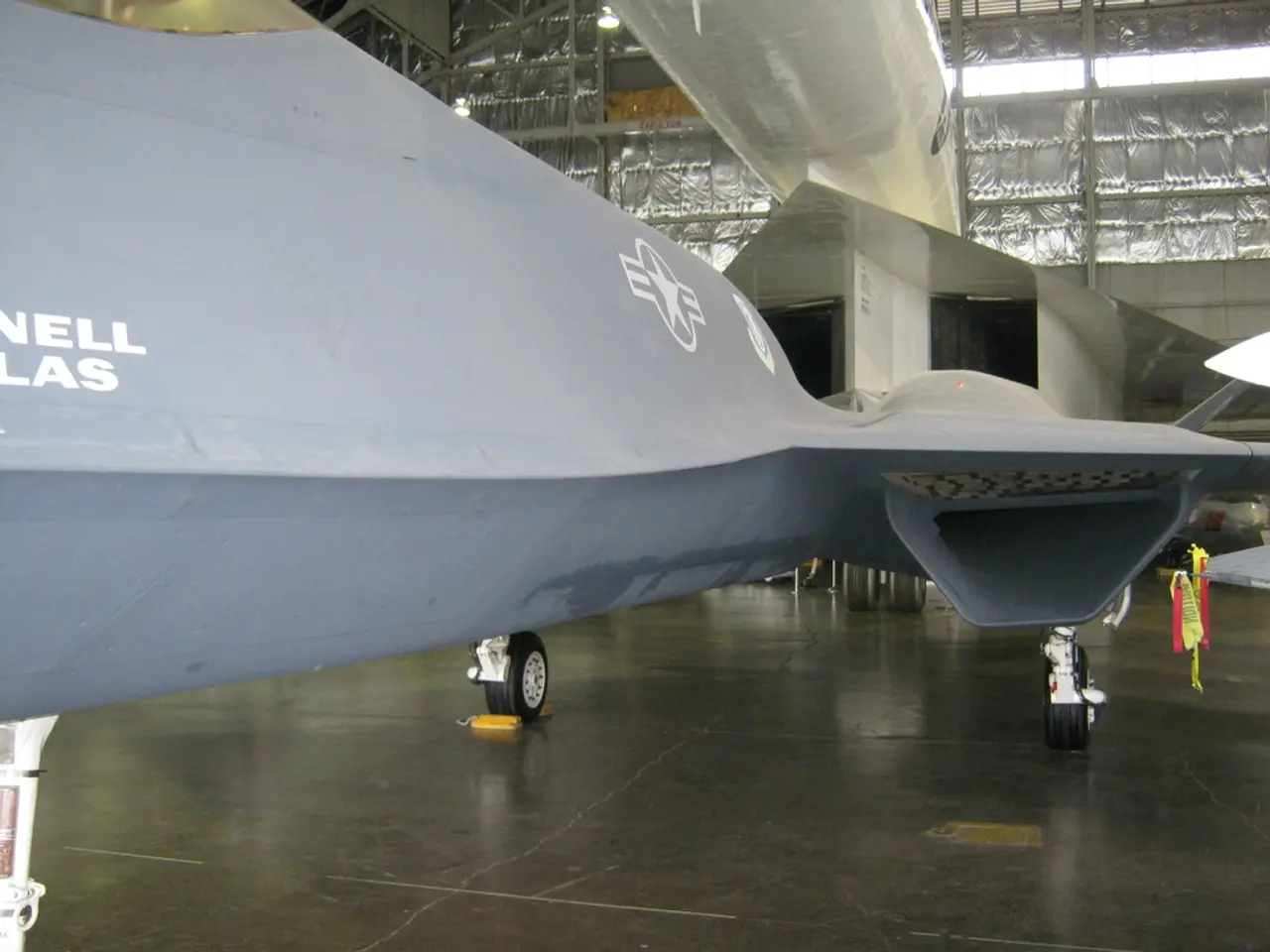Quantum computing as a potential facilitator for the reduction of carbon emissions in the aviation sector?
Airbus Leverages Quantum Computing for Sustainable Aviation
Airbus, a leading name in sustainable aerospace, is harnessing the power of quantum computing to revolutionize the design and operation of future aircraft. This innovative technology promises to overcome computational bottlenecks and support aviation in its decarbonisation journey.
One of the key areas where quantum computing is being applied is in the development of hydrogen fuel cells. The combination of lightweight and powerful fuel cells for hydrogen-powered aircraft requires complex chemistry, including the use of catalysts like platinum or alloys of platinum, cobalt, or nickel. Quantum computing can model the relative catalytic behavior of these alloys, potentially impacting propulsion and design choices for hydrogen-powered aircraft.
Airbus is also using quantum computing to optimize the loading of packages into cargo containers and the containers into the hold of a jetliner, a problem known as the 'knapsack problem'. This optimization can lead to more efficient use of space, reducing fuel consumption and emissions.
In the realm of aerodynamics, quantum computing can enhance simulations of fluid dynamics, thermomechanical behavior, and multi-domain aircraft system integration. This can result in optimally designed aircraft components like wings and propulsion systems. Airbus is a member of EQUALITY, a European consortium dedicated to developing quantum algorithms to solve industry problems, including those in the field of Computational Fluid Dynamics (CFD).
Quantum computing can operate on a far larger canvas for CFD calculations, potentially breaking the design bottleneck for future aircraft. CFD is a crucial step in designing new aircraft, involving digital simulations of airflow around an airframe to inform its shape and aerodynamic efficiency.
Airbus is also exploring the use of quantum algorithms to optimize an aircraft's trajectory in real-time, considering air traffic restrictions and weather patterns. This could offer safety, economic, and ecological benefits.
The company's Silicon Valley innovation center, Acubed, conducted a study into quantum trajectory optimization in 2023. Airbus and BMW Group have shown for the first time that quantum computing can perform atomic-level reaction modeling for fuel cell development in aeronautics.
The Quantum Mobility Quest, a collaborative initiative launched by Airbus and the BMW Group in 2023, aims to accelerate and mature quantum solutions that could help the industry solve complex challenges. This collaboration could pave the way for a greener and more efficient future for aviation.
It's important to note that the use of hydrogen-powered aircraft produces no carbon dioxide or nitrous oxide emissions during flight, releasing only water vapour into the atmosphere. This makes hydrogen-powered aircraft a promising solution for a more sustainable aviation industry.
In summary, Airbus is leveraging quantum computing to accelerate the sustainable design of aircraft, especially hydrogen-powered models, and improve operational efficiency through advanced optimization and simulation capabilities. These applications support Airbus’s goals of reducing emissions, enhancing materials, and innovating system design by the mid-2030s.
- Airbus is utilizing quantum computing not only in the development of hydrogen fuel cells for hydrogen-powered aircraft, but also in optimizing the loading of packages into cargo containers, using complex quantum algorithms to solve the knapsack problem and lead to more efficient use of space, thereby reducing fuel consumption and emissions.
- Beyond optimizing cargo container space and fuel cell development, Airbus is employing quantum computing to enhance simulations of fluid dynamics, thermomechanical behavior, and multi-domain aircraft system integration, potentially resulting in optimally designed aircraft components like wings and propulsion systems, contributing to a more sustainable aviation industry.




